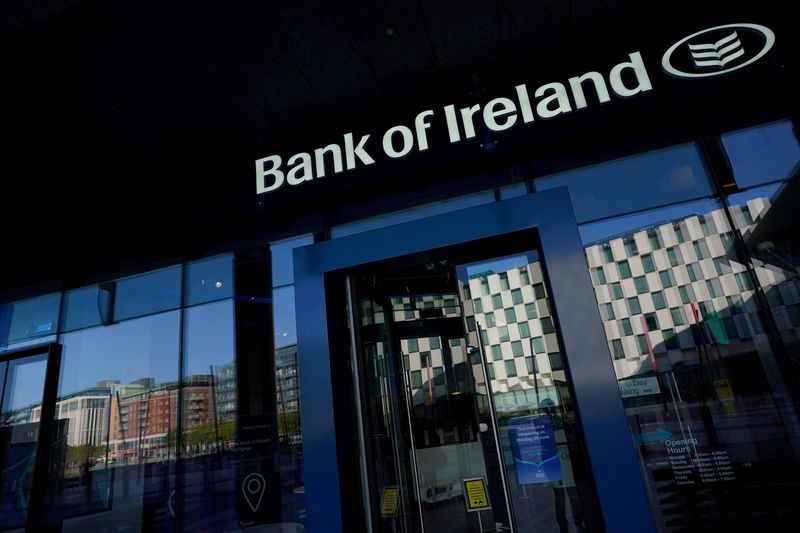By Padraic Halpin
DUBLIN (Reuters) - Ireland's two dominant banks, AIB Group and Bank of Ireland, expect commercial real estate values to fall this year but said this week conservative underwriting in their lending to the sector will make any revaluation manageable.
A shift to home working has put pressure on the Irish office market, which experienced a boom in recent years thanks largely to high levels of investment from multinational tech firms, some of whom are now cutting back on their hiring sprees, including letting people go.
Ireland's largest life insurer Irish Life, a unit of Canada's Great-West Lifeco Inc, introduced a six-month notice period for withdrawal requests from a 500-million-euro ($526.95-million) property fund on Monday, citing an increase in the level of customer withdrawals.
The commercial property market is facing a challenging period due to the reduction of office demand and consequences of higher interest rates, Colin Hunt, chief executive of AIB, the country's largest mortgage lender, said on Thursday.
"From our perspective, we consider what are the qualities of the underwriting and the quality of that underwriting is really, really robust with loan to value (LTV) ratios in the order of 60% at initiation of the facilities," Hunt told RTE after the bank reported a jump in profits and shareholder returns.
"So certainly I think that a valuation challenge may well be ahead for the sector, but I don't expect material impairments on foot of it."
Bank of Ireland, the country's largest lender by assets, based its updated financial targets published on Tuesday on commercial real estate (CRE) price falls of 6% in 2023 and 2.5% in 2024.
AIB Finance Chief Donal Galvin told Reuters on Wednesday that it estimates prices could fall by up to 10% this year.
Bank of Ireland Chief Executive Myles O'Grady described CRE as "an area of some concern" for the system, but that the average LTV for its office book stood at 55%.
The exits of KBC and NatWest Group from the Irish market has left AIB and Bank of Ireland as the main banks lending to the sector.
However unlike over a decade ago when a huge crash in CRE prices contributed to a banking collapse, funds investing in property are now a key participant in Ireland, holding around 35% of the investible market, according to the country's central bank.

The regulator last year introduced a new leverage limit for property funds to address risks arising from that rapid expansion.
($1 = 0.9489 euros)